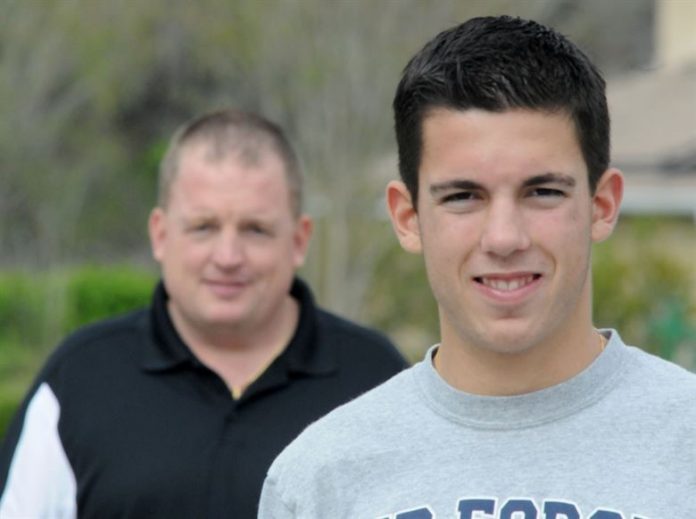
“Son, we need to talk.”
Rolling his eyes, your teenage son turns to face you.
“Not now, I’m busy,” he says, reluctant to hear what you have to say.
But listen he must, because there are some lessons every teenage boy needs to be taught to help them progress into adulthood.
Here are a few examples.
#1: Teach your son domestic skills
We have long since past sexist attitudes in the home. No longer are men seen solely as the breadwinner, and no longer are women seen solely as the housewife, dutily cooking and cleaning, amongst other domestic chores. It should be an equal balance, and for boys growing up, they need to know that a) women are equal, and b) how to learn some of the skills needed with regards domestic responsibility. Of course, your son doesn’t need to know these things in lieu of any relationship, as should they move into their own apartment or student accommodation alone, these skills are necessary to survive in the world. From learning how to iron to getting to grips with basic recipes, teach your son the appropriate skills through practical demonstrations and opportunities to practice for themselves. Wearing a pinny while they learn is entirely optional!
#2: Teach your son money-management skills
This is essential for two reasons. For starters, once your son learns the value of money, he will stop treating you like a walking, talking ATM. Secondly, as he moves into independence, there are some skills that will prove incredibly useful, such as how to control and manage a budget, how to save, and in lieu of buying a car, TV, and any other luxury item, how to keep a good credit score. Read our pointers here, and then not only should you talk to your son about each lesson mentioned in our article, but you should also role-model good financial behaviour to further cement their learning.
#3: Teach your son more about sex and relationships
Uncomfortable as it may be for you, you need to have THAT talk with your son at some point during his teenage years. And while he might find it as embarrassing as you do, it’s still essential for his long-term protection and understanding of the matter. Of course, your son might not need the whole birds and bees talk. Chances are, he will have already learned that lesson through the internet, but it’s still worth raising the topic of sex if he is in any way unsure. However, if he has learned about sex online (his browsing history will give it away), you should also teach your son about the opposite sex, and how they deserve to be respected and listened to, be that in or out of a relationship. And while it is right to tell your son to hold fire before he has sex with another until he is of a legal age, you also need to realise that teens do have sex, so lessons on safe sex should be a priority, as well as lessons about symptoms of chlamydia and other STI’s that may result as a consequence.
#4: Teach your son about hygiene
Your son should already know the importance of hygiene from the lessons you taught them in their younger years; however, thanks to puberty, hygiene lessons are essential when they are going through their teenage years. Your son’s bodily capacity to sweat increases, and there are also issues around acne to consider as well. These issues can be embarrassing for your son, but while you should let them know it’s perfectly normal for their body to break out in such ways, you should also teach them how to look after themselves properly. Check out the following hygiene tips, and remind your son of them should you notice any pimple breakouts or any nasty body odours.
#5: Teach your son about the importance of the word ‘no’
This is a lesson about personal responsibility; how your son needs to take care of themselves by not following the temptations of peer pressure. Saying ‘no’ is about refusing to do anything they feel uncomfortable with, be it taking drugs, driving while drunk, having sex, or taking part in any form of criminal activity. It’s tough being a teen, as you will understand from your own experience. So, talk to your son about your teenage years, and the pressures you faced. Let your son know how you succeeded or failed when faced with the option of saying ‘no,’ and explain the consequences that could arise should they agree to do anything potentially harmful to them. And take a look at this article, which has a few helpful pointers on how to say ‘no’ to peer pressure. Apply them to the lessons you teach your son.
Finally
Much of your teen’s education will come from school but don’t underestimate your teaching role as a parent. Consider the lessons mentioned above, and find time to go through each with your teenager. Sure, they might roll their eyes or protest, but one day, they will be thankful for the valuable lessons you have taught them.
















